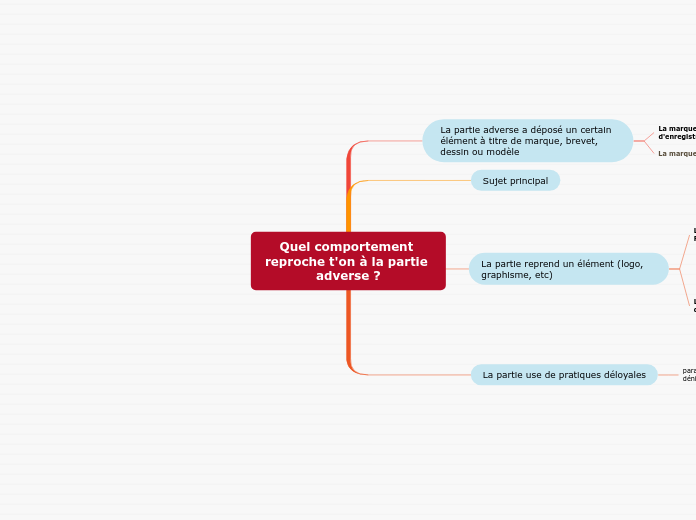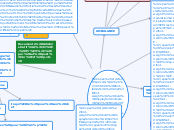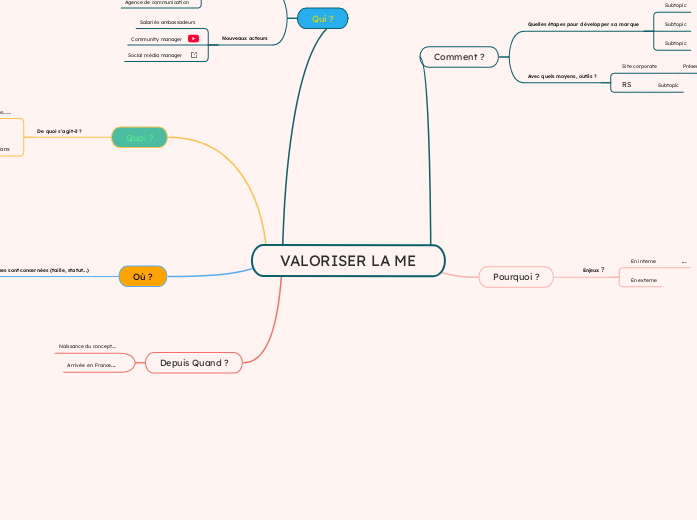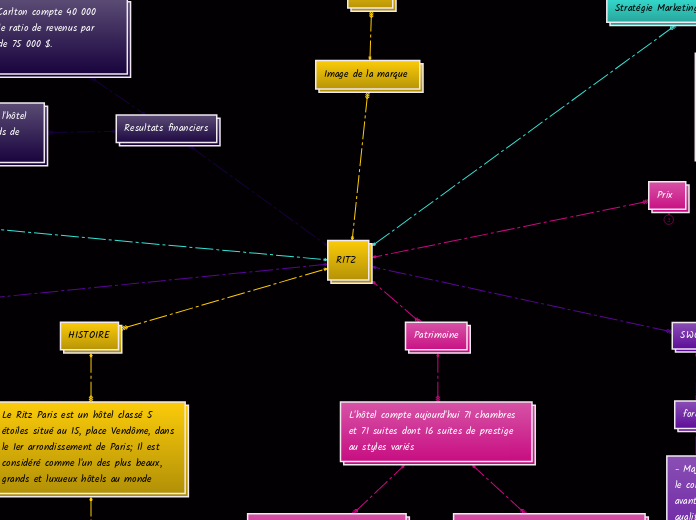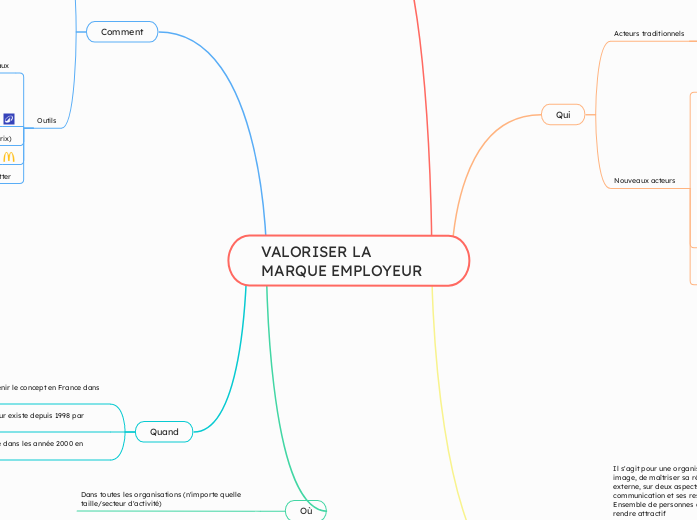Quel comportement reproche t'on à la partie adverse ?
To name your story, you have to think about the overall message and what you want your audience to understand from the story. Also, make it relevant and easy to remember.
La partie use de pratiques déloyales
The ending of a story is essential. We all know that if the ending is weak, what happened before loses its importance. So make it unpredictable, but fair. A resolved ending answers all the questions and ties up any loose threads from the plot.
parasitisme économique, éléments trompeurs, dénigrement
La partie reprend un élément (logo, graphisme, etc)
The middle of the story is where you add layers of complications that will lead to the end. Reveal more about the character's journey. Did their personality go through changes? How did they overcome the challenges? And as you build up the story’s central conflict, make it more personal to that character. Also, from the middle act, you have to lead into the final act.
L'élément repris n'est pas protégé par un droit de la PIC
Your character(s) need(s) motivation in order to solve the challenge(s).
action en contrefaçon de marque notoire
Secondary characters might also have motives that lead them to cross paths with the main character or which might trigger them to help the main character.
L711-3 I 1° CPI
action en contrefaçon de droit d'auteur
Secondary characters also might have motivs beacuse of which they may cross path with main character or which might trigger them to help the main character.
L111-1 CPI
action en concurrence déloyale / parasitisme économique / pratique commerciale trompeuse par confusion
Why does your character need to confront this challenge? What does he/she expect to accomplish by solving it?
See a few examples:
- will marry in 3 days
- can fix the mistakes of the past
1240 CC
L'élément repris est protégé par un droit de la PIC
Each story has a main character and that character usually needs to solve a problem or challenge. The character's challenge is the one that creates tension throughout the story.
à titre subsidiaire / complémentaire
Type in any other challenges which other characters in the story need to face.
pratique commerciale trompeuse par confusion
action en concurrence déloyale
à titre principal :
In most stories, there are 3 challenges. The number 3 is a mystical number symbolizing completeness. Try to come up with interesting challenges with which your character needs to struggle.
See a few examples below:
- turns into a werewolf at night
- is sent back in time
action en contrefaçon de marque de renommée
L711-3 I 2°
action en contrefaçon
L713-2 + L713-3 CPI
Sujet principal
La partie adverse a déposé un certain élément à titre de marque, brevet, dessin ou modèle
In the beginning of the story (or the exposition), you will need to introduce the setting and characters. You might also want to introduce the main conflict. This part of the story is important because it gives the reader necessary background information and maybe even a first insight into a character’s personality.
La marque est enregistrée
on peut intenter une action en nullité
L713-3 CPI
La marque n'est pas enregistrée ou en cours d'enregistrement
Characters are essential to a good story. Usually, the protagonist(s) is/are the most affected by the plot. Introduce a character by focusing on their actions, interests, and occupation, as the physical appearance doesn't make a difference in most cases.
on peut former opposition
Type in the name of your character.
L711-4 CPI
What is your character's main goal?
fight Evilfind lovedefeat his/her enemyrule the worldmake friendstime travelmake an awesome discoveryOther
